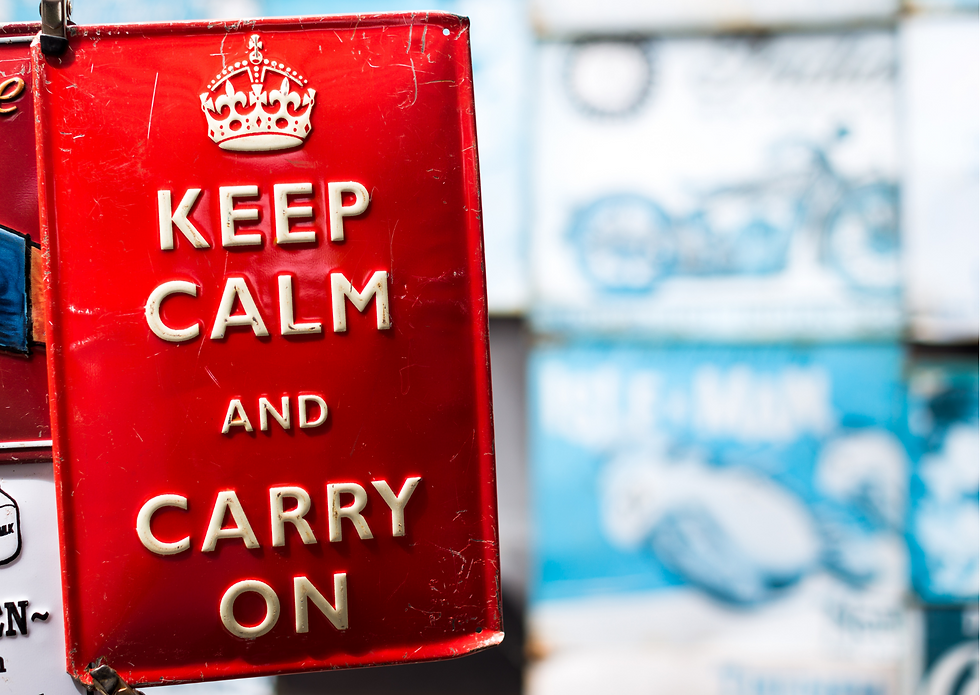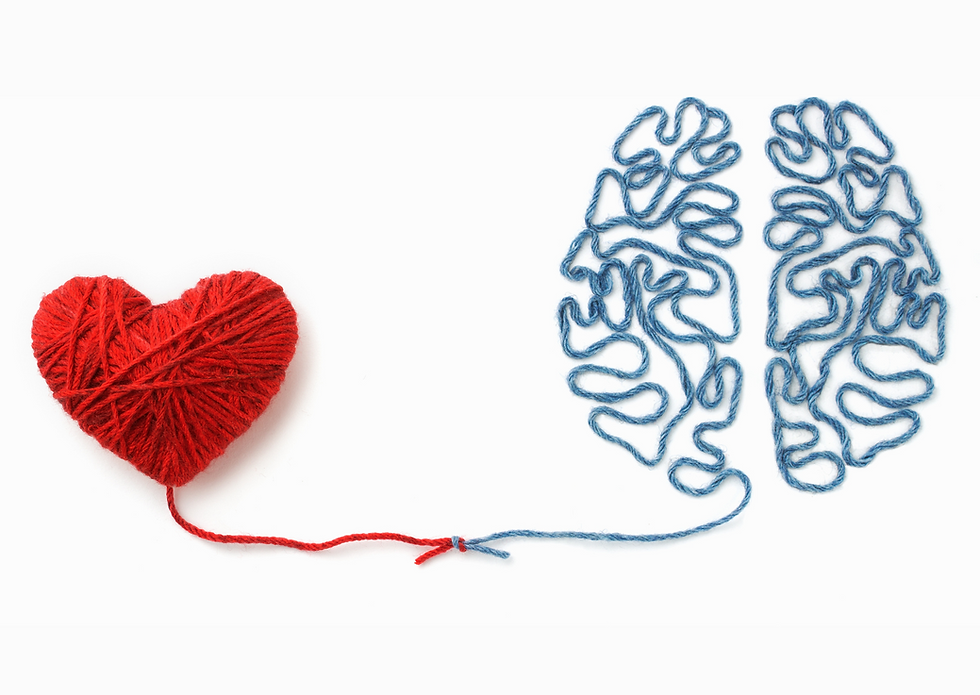Self-Control – the art of keeping calm and carrying on
- Mary Ely

- Oct 19, 2022
- 4 min read
RocheMartin defines Emotional Intelligence by a set of 10 competencies and this is one in a series of blogs covering each one: Why develop Self-Control, what is it exactly and how can you develop it?
Why develop Self-Control?

This message quite neatly sums up Self-Control and why it’s a good idea to develop it.
Self-Control is the ability to keep calm, despite what’s going on and as a result, be able to refocus and carry on with what you need to do.
It was originally created as a poster by the propaganda department of the UK Ministry of Defence during the second world war as a message to the nation but has become popular again after a bit of a break.
And it highlights why Self-Control is so important for dealing with times of change.
At its core, Self-Control is about being able to choose how we think, feel and behave, rather than being at the mercy of our automatic reactions to things.
Our brains are designed to make sense of all the information from what’s happening moment to moment as quickly as possible. Less than a split second between
the stimulus – the information coming in through our five senses, and
our response – what we say to ourselves about what’s happening, how we feel and the impact on our body.
And our response impacts what we do or say and what happens next.
Self-Control is about being able to interrupt those natural responses and instead make a conscious, objective and rational choice about how we react and what we then do as a result.

This is a particularly useful thing to be able to do when the natural response is to dump us in an unresourceful state with emotions like anger, frustration, sadness, fear, anxiety, guilt, despair, boredom etc.
Those emotions stop us from
thinking clearly and objectively,
staying productive or
maintaining focus on what we’re doing.
So being able to quickly recognise when we’ve been hijacked by unhelpful thoughts and emotions and regain control to consciously choose our response is a handy thing to be able to do….in all situations. Personally and professionally.
It’s also helpful for the people around us which is why it’s so important for leadership and for people working on projects.
Those high emotions tend to be contagious at worst and unsettling or distracting for others at best.
One ‘drama king/queen’ who can’t control their emotions will have a detrimental impact on everyone around them.
Mastering Self-Control gives you...
Personal power
The ability to always CHOOSE how you feel moment to moment. How cool would that be?
The ability to delay gratification
Rather than acting on impulse to get a short-term gain, you can control that urge for the benefit of long-term gain.
This is helpful for goal achievement, creating new habits, overcoming procrastination/getting things done...which is why it’s widely acknowledged that being able to do this is a key skill of successful people.
Response-ability
The ability to take control of how you respond (I love breaking down words with ‘able’ on the end).
A great poker face
Whatever hand you’re dealt, nobody can guess if it’s good or bad from your reaction.
Grace - like a swan
Whatever flapping is going on underneath the waterline, you’re able to stay calm and serene. Unflappable.

What is Self-Control exactly?

Self-Control means you're able to let go of negative emotions quickly, so you can think logically, focus on what needs to be done and move forward in an organised way
As with all the RocheMartin emotional intelligence competencies, Self-Control can be broken down into 3 components, which help to pinpoint areas of strength and areas for development.
The 3 components of Self-Control are
Calmness
Being able to stay calm and keep a consistent mood, whatever is going on.
Able to find a way to let go of or stall negative emotions that are the natural reactions to what may be going on.
Rational minded
Negative emotions have the effect of hijacking our logical minds and we stop being able to think straight.
Being rational-minded means that you're able to stay focused and not let your mind be hijacked.
Disciplined
Going about things in a logical, orderly manner and being accountable for what you do.
How can you develop Self-Control?
Coaching and Therapy both help you explore what triggers your emotions and how you can change your habitual responses to have more Self-Control.
Coaching is an efficient, effective, engaging, empowering and enjoyable way to build any of the Emotional Intelligence competencies.
Helping you to develop, refine and embed your own personalised strategies for each competency.
And this blog contains some ideas for you to experiment with on your own that have worked for me and my clients.

If you’re interested in understanding your level of emotional intelligence using one of the RocheMartin assessments or would like to explore coaching for developing components of it like Self-Confidence, you can book a free call here.
And if you'd like to try out my monthly emails that provide a roundup of my blogs as well as other insights, you can sign up here.





Comments